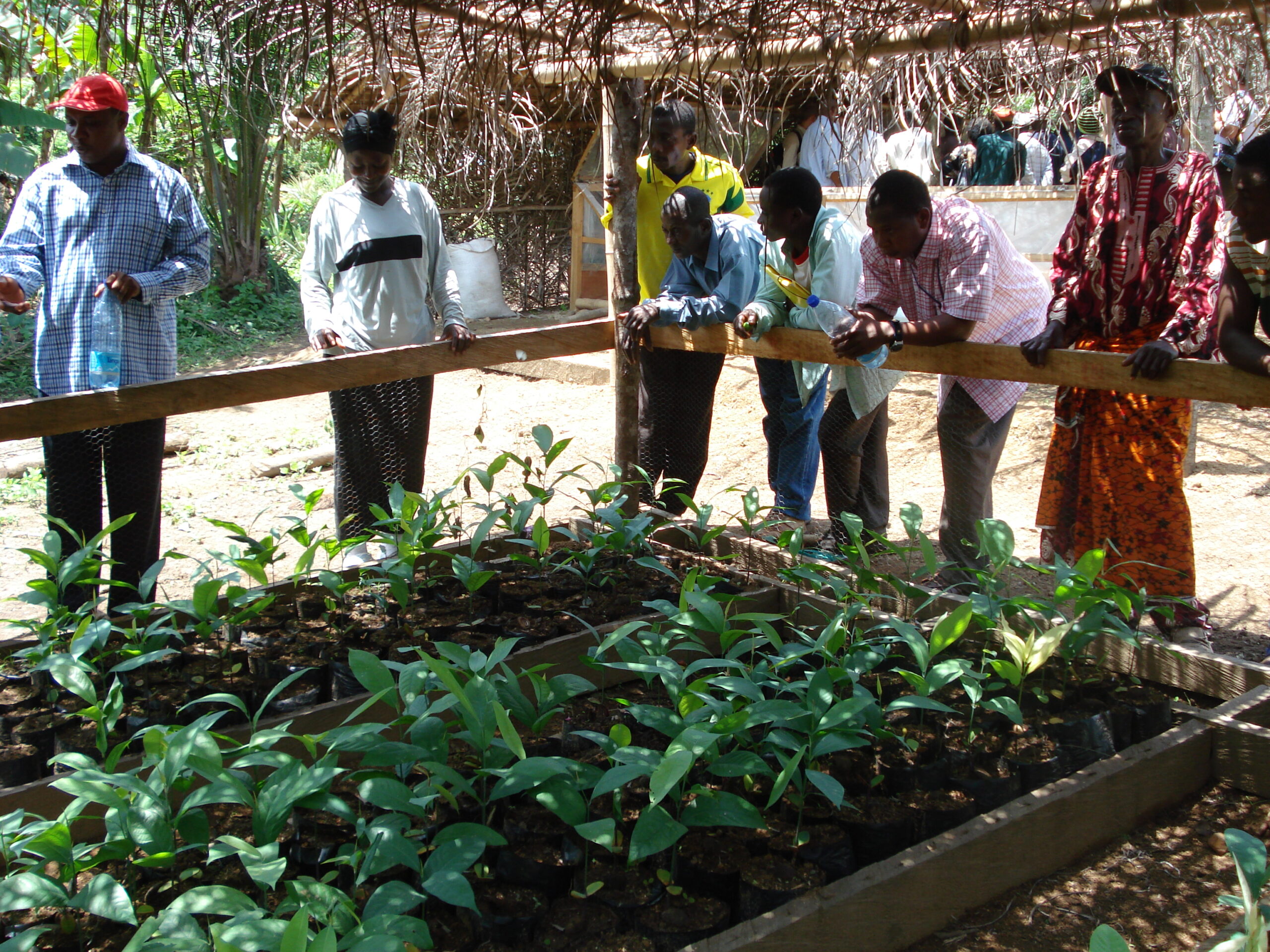
Programme for the Sustainable Management of Natural Resources (PSMNR) – South West Region
Timeframe
Duration
As of
Sustainable
Development
Funded by:
KfW Development Bank
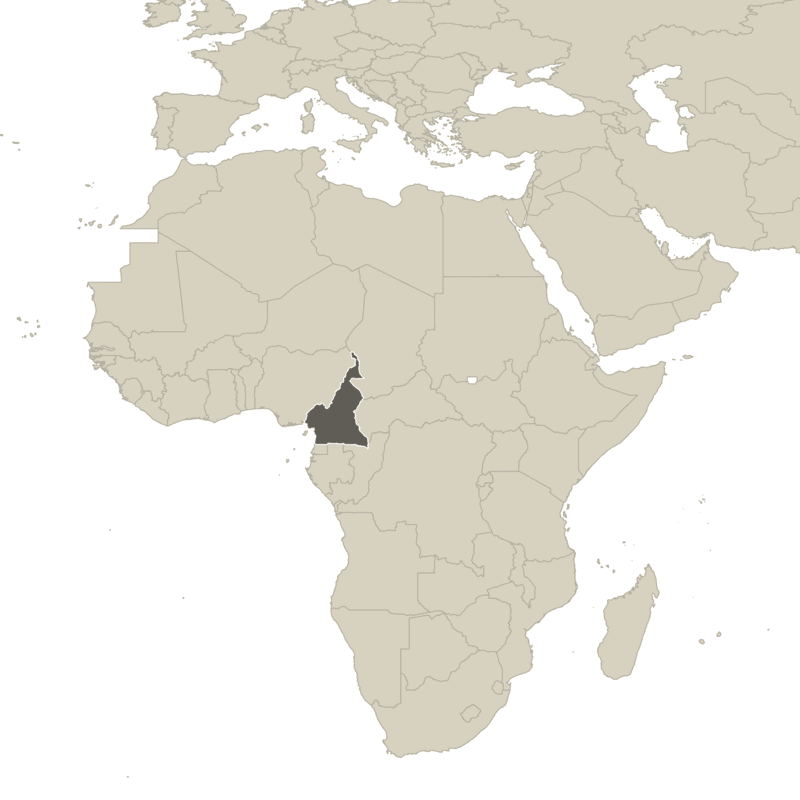
Introduction
The communities adjacent to the Protected Areas (PA) lack of income opportunities and social infrastructure, such as road access, drinking water supply, health care and education. They highly depend on the goods and services which they derive from the forests. While the rural population does not sufficiently benefit from natural resource management or the existence of PAs on their traditional lands, conservation measures even constrain their livelihoods. This results in unsustainable use of the natural resources and the loss of biodiversity.
The Project
The Programme aimed at the conciliation of conservation of high value ecosystems and endangered species and socio-economic development of adjacent communities in and around Mt. Cameroon (Bomboko Forest Reserve, Korup National Park, Takamanda and Mone Forests) and the improvement of the livelihood situation of local communities.
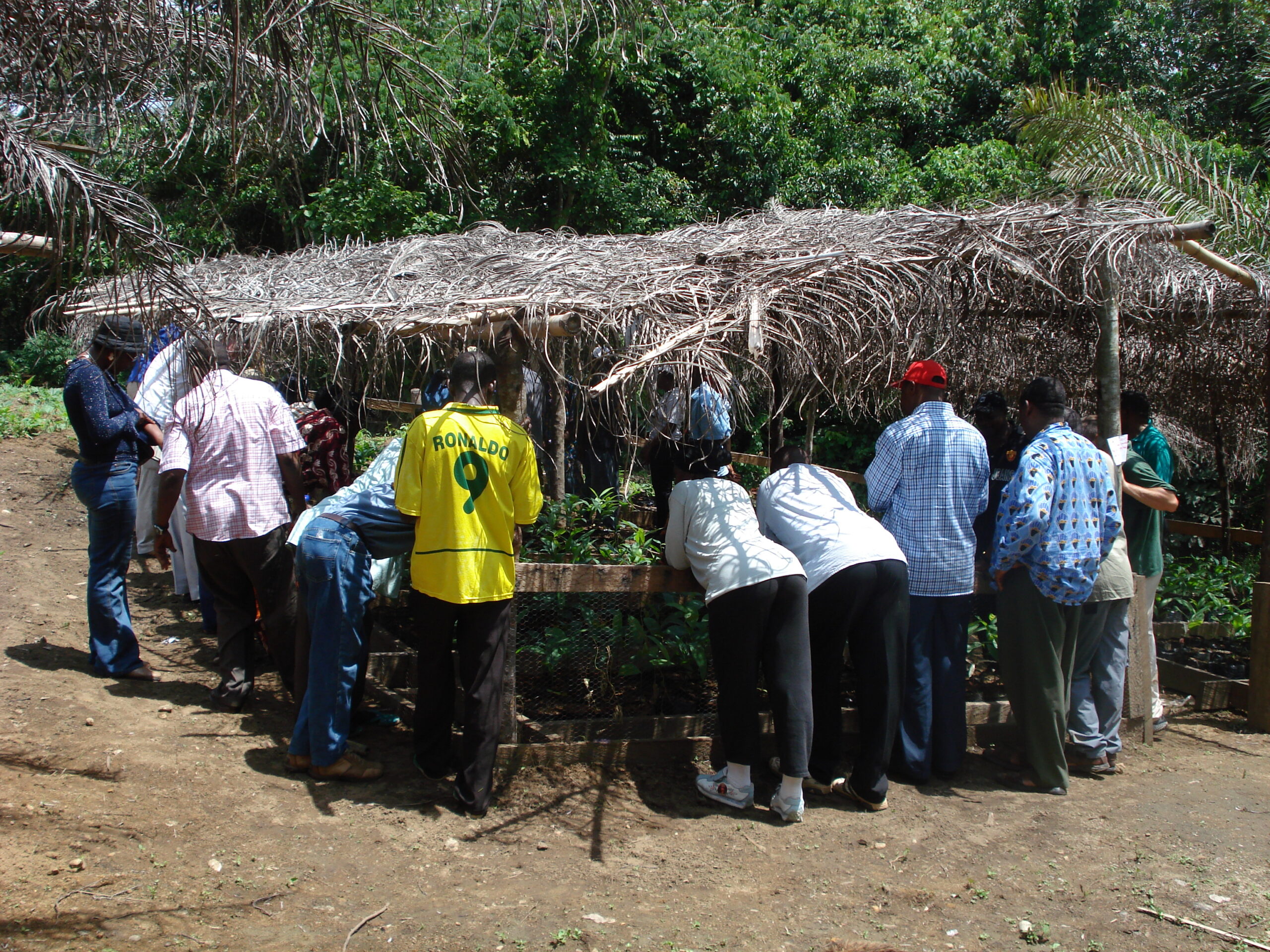
Project Objectives
- Conservation of high value ecosystems
- Conservation of endangered species
- Socio-economic development of adjacent communities in and around Mt. Cameroon
- Improvement of the livelihood situation of local communities
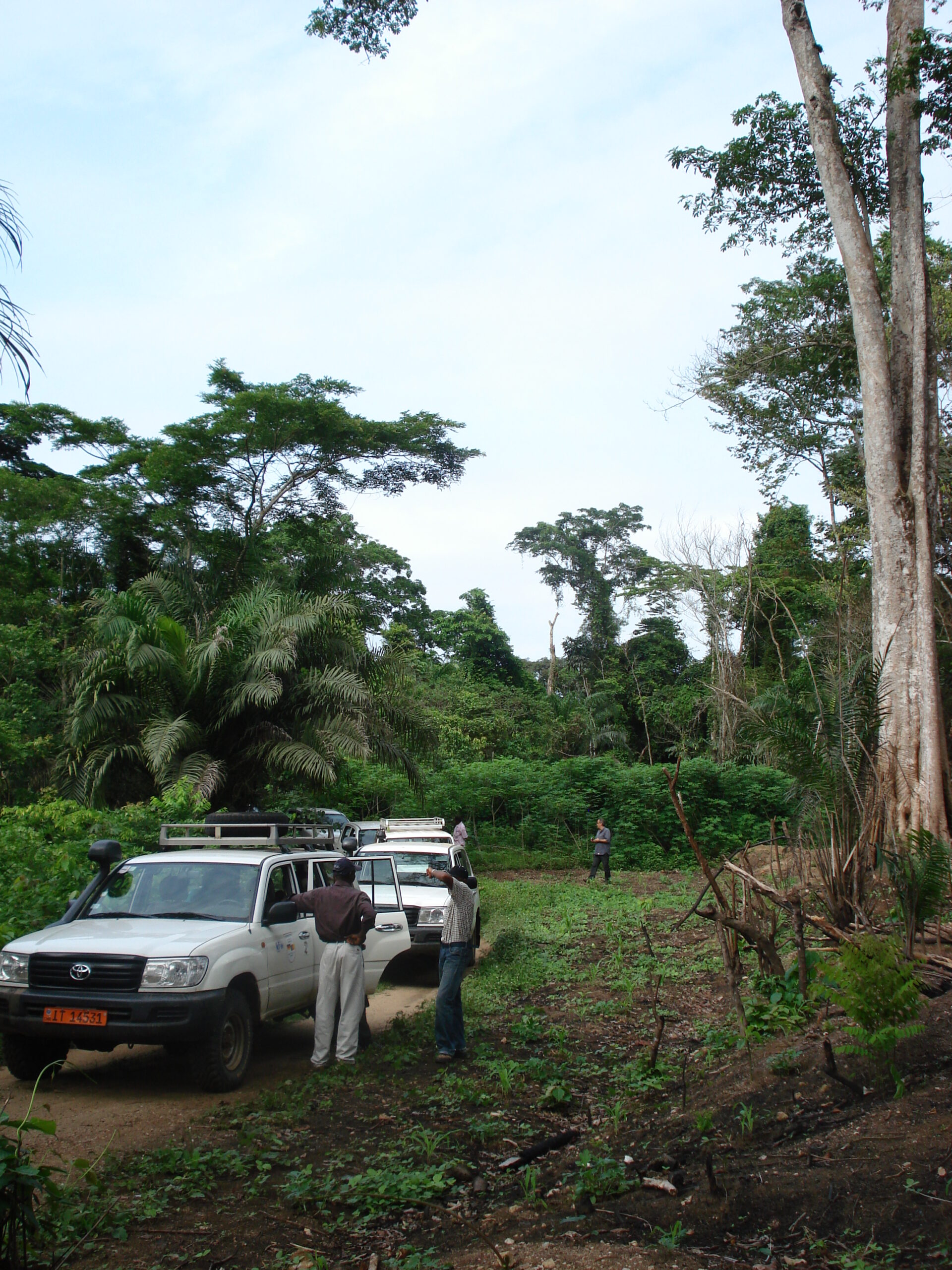
Our Contribution
- Creation of two new National Parks (NP) in a participatory process
- Elaboration and revision of management and business plans of three NPs
- Improving the PA management by organizing the park team to attain an icreased level of protection
- Support eco-tourism development and thereby incompe generation for NP
- Monitoring of wildlife and illegal activities by esuring regular surveys and patrol monitoring with cybertracker and the introduction of the Spatial Monitoring and Reporting Tool (SMART)
- Ensuring the integrity and ecosystem functioning of the PAs as a core zone in a wider landscape through an approach looking at the sustainable development of the peripheral zone, working on land use conflicts around the PAs, participatory corridor management involving councils and villages, or supporting the creation and the management of community and council forests around the PAs, and collaborating with forest concessions on sustainable forest management.
- Bringing on board the 91 villages in and around Mt. Cameroon, Korup and Takamanda NPs to accept the PAs and work together with the national park services in the framework of a collaborative management system
- Improving the communication and collaboration of the NPs through the creation of Village Forest Management Committees (VFMC) and cluster platforms, all animated by a cluster facilitator engaged out of the communities.
- Improving the livelihood of numerous villages through socio-economic infrastructure development (drinking water supplies, farm-to-market motorbike roads, storage facilities and markets) and “green” income generating projects
- Piloting of an innovative law enforcement system
- Income creation on council, village and individual level through management of council forests, community forests and harvesting of Prunus africana
Project Partners
Ministry of Forestry and Wildlife (MINFOF), Cameroon
Project is aligned with the following SDGs
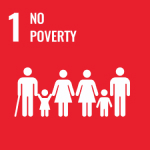
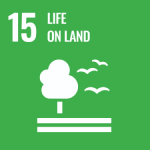
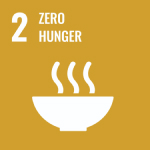
Get in touch
More Information
Let us join forces in creating a more sustainable and just world. Contact us today - we'd be glad to serve you.
info@dfs-online.de